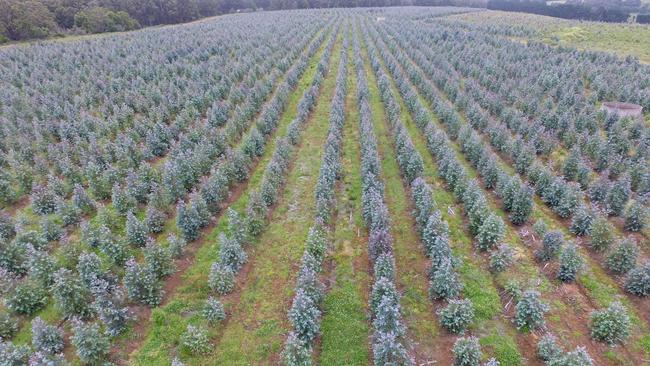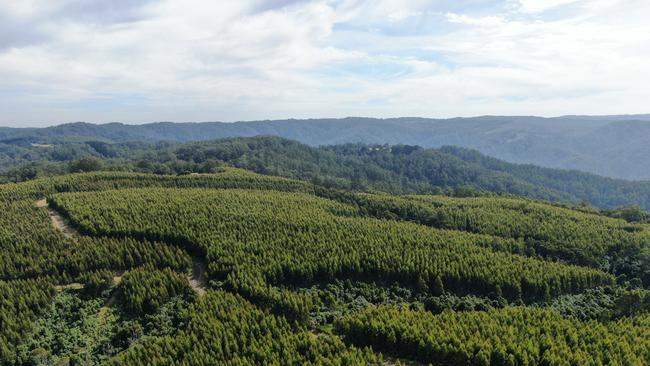Midway signs Victorian plantation deal with Munich Re subsidiary MEAG
The nine-figure deal was struck just months after the plantation industry saw opportunities to earn carbon credits widen considerably.
New forestry plantations are planned for south west Victoria after forestry company Midway announced a $350 million deal with MEAG, a subsidiary of insurance giant Munich Re today.
Midway managing director Tony McKenna said the deal marked “one of the biggest investments in private forest plantations in Victoria in 20 years”.
Midway said in a presentation to investors today it had sold its 17,000-hectare plantation in Victoria’s Otway region to MEAG for $154 million.
MEAG has also agreed to invest more than $200 million in new greenfield plantations in the state’s south west, which will be managed by Midway.
Purchase of the land for the new sites will take place over the next five years, Mr McKenna said.

Carbon market drives investment
The deal comes three months after Australia’s Emissions Reduction Fund updated its plantation forestry method to provide more opportunities for the plantation industry to earn carbon credits.
Mr McKenna said the deal was “a great opportunity for investors who want to participate in the emerging industry of carbon sequestration”.

MEAG has investments in over 300,000 hectares of forestry assets globally.
MEAG board member Holger Kerzel said the company had identified the Australian hardwood production sector as a “key growth opportunity”.
Midway transitioning to ‘carbon management’
After the sale of its plantation assets in Victoria’s Otway region, Midway will own only a “small” and “not meaningful” piece of plantation land, Mr McKenna told investors.
The company’s core business going forward would be woodchip processing and “carbon management”, he said.
“We see carbon as a really important part of our business and business strategy going forward,” he said.
“This is a really meaningful step in that direction, basically securing $200 million-plus to invest in projects that will generate carbon and where we will be paid for registering and managing those projects.
“That will help us build out our existing in-house expertise in carbon. And it’s our aim to then be looking to roll that out into other markets.”





